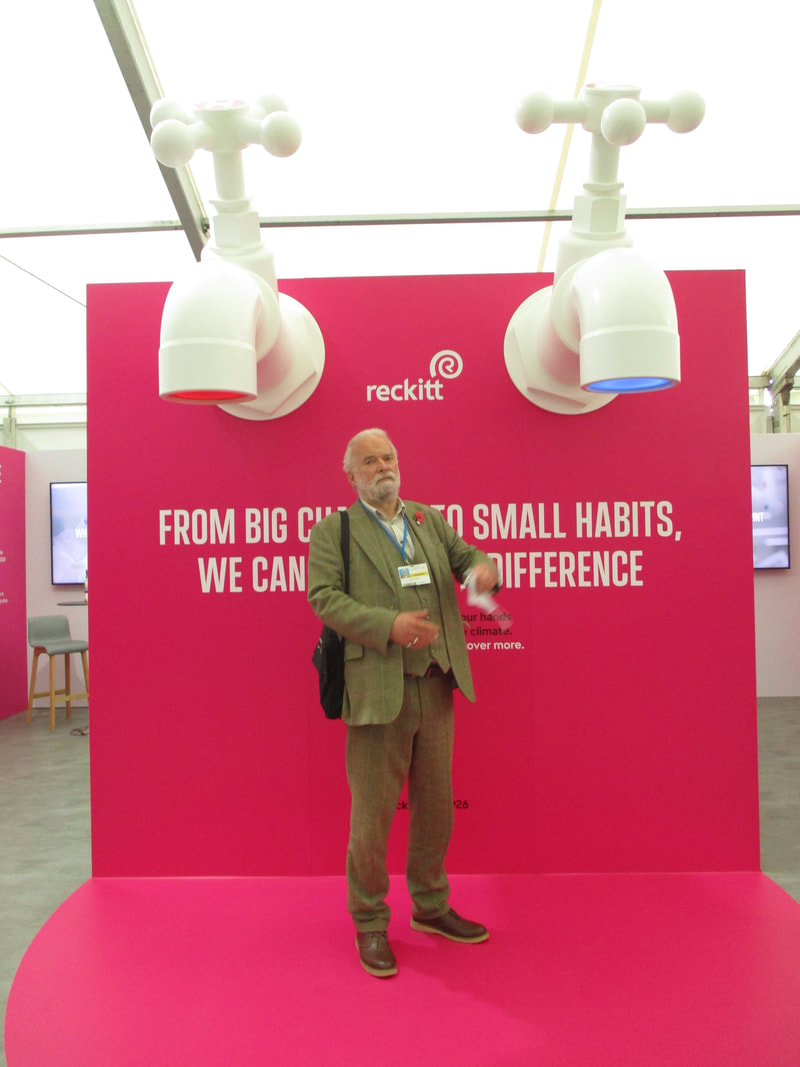- About
- Contact
- Blog
- CONSUME
- GALLERY
-
PERAMBULATIONS, Etc.
- Old Parcels Office, Scarborough
- Ghent
- White Cube
- Cornerhouse, Manchester
- Venice 2019
- Tectonics
- Leeds City Art Gallery
- Hayward Gallery, London
- Hull University Art Gallery
- Whitney Gallery, New York
- Royal Scottish Academy, Edinburgh
- Talbot Rice Gallery, Edinburgh
- Fruitmarket Gallery, Edinburgh
- Modern One & Two, Edinburgh
- Groeningemuseum, Bruges
- Humber Street Gallery, Hull
- Renwick Gallery, Washington DC
- Arenthuis, Bruges
- Ropewalk Gallery, Barton on Humber
- Geementmuseum, Den Haag
- Ferens, Hull
- Crescent Arts, Scarborough
- Walker Art Gallery, Liverpool
- Hepworth Wakefield
- Yorkshire Sculpture Park
- Stedelijk, Amsterdam
- Henry Moore Institute
- Louisiana
- SMK Copenhagen
- Yorkshire Sculpture International
- Tate Modern
- Whitworth, Manchester
|
Regular readers of this blog will not be surprised to hear that I found COP26 a disappointment. The vast conference reminded me of an ant hill, which from a distance seems static and lifeless but on closer inspection reveals a hubbub of seemingly chaotic activity. Except the ants’ activity is fully fruitful and purposeful. COP26 is chaos with sudden random bursts of energy, brief flashes of insight but with little chance of making the sum of its parts add up to a greater whole. Of course there were indications of progress, each lauded as setting us on the right path, albeit a path with no satisfactory end in sight. It seems the biggest legacy of COP26 will be that it ‘keeps hope alive’ that we will manage to keep the rise in global average temperature to 1.5 degrees centigrade. This hope is like somebody saying ‘now let us all pray’ - and lo and behold, something, like an invisible hand reaches out and saves us as is so often the case in disaster movies. But the only invisible hand in the modern economic era that I’m aware of is that of market forces, and so far it has failed to act. As Nick Stern said, climate change is the biggest market failure of all time. Now it’s going to correct itself? Pah! I repeat: PAH! The problem we face is so rapidly running out of control, the carbon emission cuts we seek will not stop the climate change juggernaut. There are three legs to this climate change stool, only one of which we think we have control over, namely carbon emissions. The other two are feedbacks and carbon sink efficiency. Both of those are increasingly oblivious to our puny efforts. They do not, indeed seem to feature very much in the great discussions around the COP table. How could they? They are the great imponderables in this battle, and to be fair they are not as quantifiable as we would like them to be. Except to say, they seem to be playing a more damaging role than most models predicted, or at least have added to the view that climate change models were too conservative in their assessment of the problem. The science bowed down to the politics (a feature of the whole UNFCCC process from the start) and generously allowed us to behave as if we had all the time in the world to solve this problem. Now, as the captain of the Titanic may have said as the iceberg came into view, ‘Steady as she goes (we’re unsinkable)!’
0 Comments
Leave a Reply. |
Archives
March 2024
|


 RSS Feed
RSS Feed